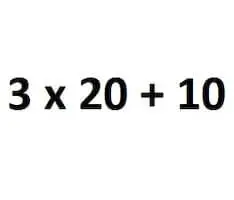Hello Adam,
Thank you! I just noticed a few typo's from my last posting involving the stats... they should read...
At age 45 in 1881-1890 males were expected to live a further 22.1
years..average age at death therefore 67.1 years of age, females a further 24.1 years..average age at death therefore 69.1 years of age.
At age 65 in 1880-1890 males were expected to live for a further 10.3 years of age..average age at death therefore 75.3 years of age, females a further 11.3 years of age...average age at death therefore 76.3 years of age.
I blame in on the 'flu...back to the chicken soup!
best wishes
Phil
Thank you! I just noticed a few typo's from my last posting involving the stats... they should read...
At age 45 in 1881-1890 males were expected to live a further 22.1
years..average age at death therefore 67.1 years of age, females a further 24.1 years..average age at death therefore 69.1 years of age.
At age 65 in 1880-1890 males were expected to live for a further 10.3 years of age..average age at death therefore 75.3 years of age, females a further 11.3 years of age...average age at death therefore 76.3 years of age.
I blame in on the 'flu...back to the chicken soup!
best wishes
Phil






Comment